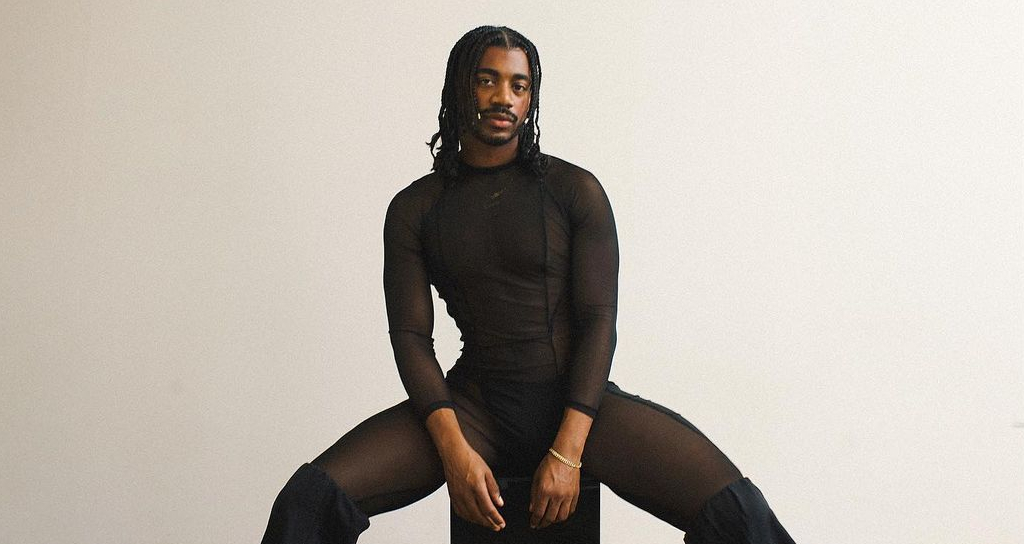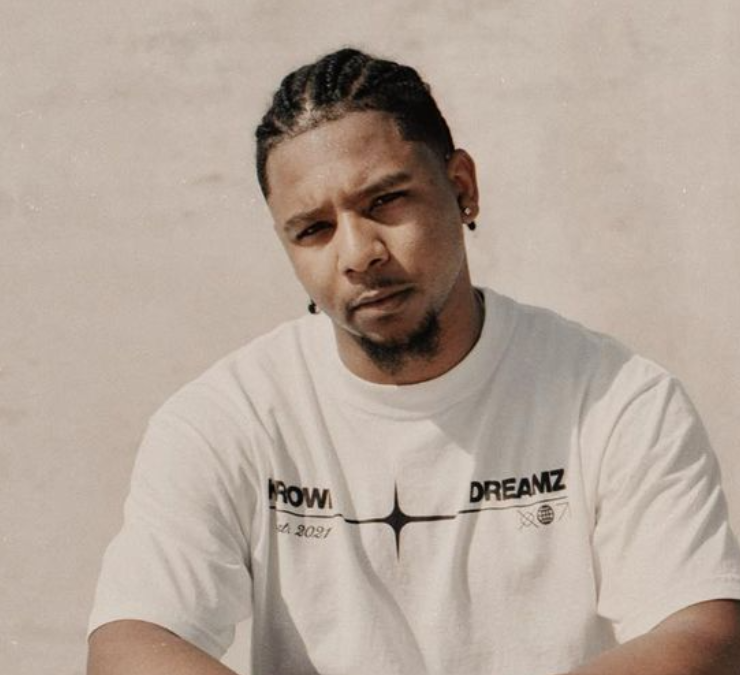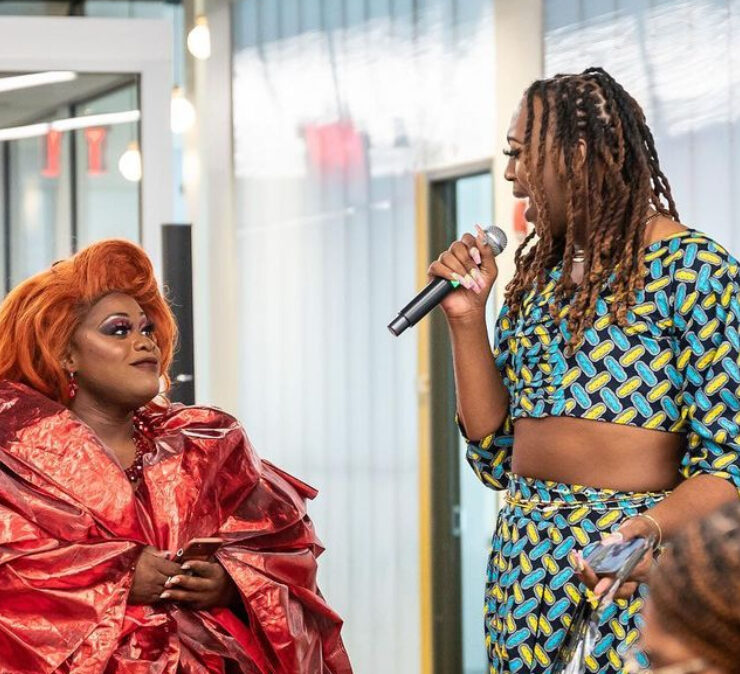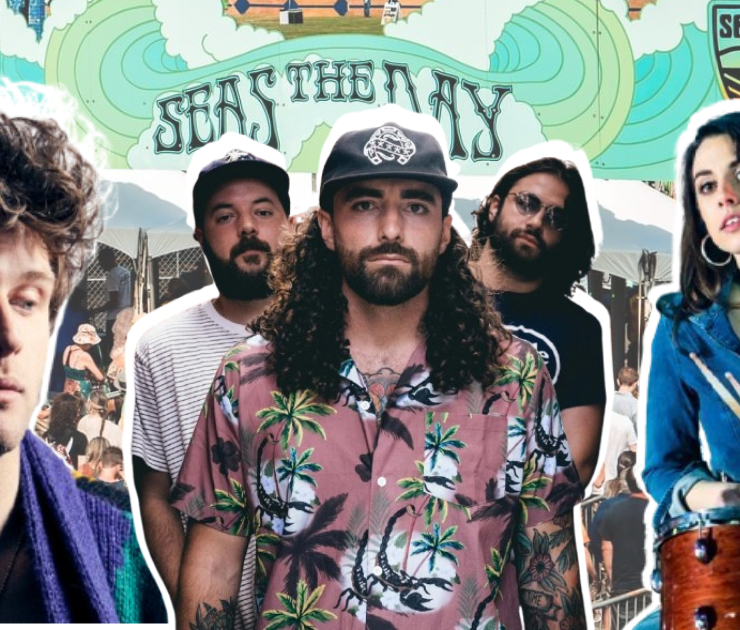Whether I'm popping in to an open mic night or…
With digital streaming platforms unveiling record-breaking usage, there’s no time like the present for aspiring musicians to throw their hats into the ring. However, now that the barrier of entry has been lowered and the number of new releases in a given week could easily reach into the ten of thousands, how can budding new acts take a pie of the fan base pie?
This is a question singer, songwriter, and producer Bronze Avery asked himself. As an independent artist, he knew the road would be tough, but after winning Billboard’s NXT Competition sponsored by Samsung, that cloud of self-doubt quickly went away. With his newfound confidence, he dropped what he believes to be his signature project, SOFTMETAL. The 13-track project is a culmination of sounds, influences, and lived experiences.
During our interview, Bronze Avery spoke about his debut album SOFTMETAL, his thoughts on how music is divided into genres, navigating his queer identity in his music, and more. Continue below to read the full interview.
You’ve been recording music for quite a while now, but I wanted to know, where did your love for music initially come from?
Avery: “I was basically one of those people who grew up singing. That was one of the first things I was ever doing around the house. My mom and dad are not inherently musical people, so I don’t know where it came from, but I’ve always loved singing. I knew from a very young age—probably around ten—that’s what I wanted to do as a career. I wanted to be a singer, or specifically, I wanted to be in commercial music. I wanted to be a pop star, and my first album ever was Love Angel Music Baby by Gwen Stefani. So that’s where I got my love for pop music. I grew up in Orlando, so there wasn’t really a lane for the music industry out there at all. There was a brief time when some of the boy bands from the 90s were living in the Orlando area, but generally, for me, there was no path.
So, when I was in high school, I got into theater because that was the most adjacent thing to performing and becoming a musician. So that’s where I really started to hone my skills in music and put all my talent somewhere. Once I got into college, I started to fit my feet into recording music with other producers, learning that I was also a producer. I think if I were in a different city – but I’m happy that it turned out the way it did because I got to have a lot of other experiences as well.”
So let’s talk about how you transition through those intersections of being a music professional. Is there one that you prefer over the others? Or a fun tidbit about how you got started in any of those subsections?
Avery: “I never knew that songwriting was separate from singing. I just assumed if I heard it from a recording, that person wrote it because who else was going to do it? And I guess that was from my almost, in a sense, limited worldview because I was like, ‘Who else would be writing my songs?’ It has to be me.
So I started writing and singing hand in hand, but I knew I needed recording. But I did not have any equipment to record. When I was in 7th grade, I begged my mom to buy a Mac as our family computer because it had GarageBand on it, and I thought if I could just get GarageBand, I could make real songs. Little did I know, that is when I started learning how to actually produce music. But I would never actually call myself a producer until, like, ten years later. It was like the imposter syndrome for like ten years. I think my favorite is songwriting, specifically. Sometimes I’ll call myself a recording artist over a singer just because I literally love recording so much. But I would say songwriting is my favorite aspect of it.”
How has that journey been?
Avery: “I didn’t have a mentor for anything. I didn’t have a mentor for being queer. I didn’t have a mentor for being in the music industry. I didn’t have a mentor for producing. I have no mentors at all. So I kind of had to learn how to do everything myself. I do think a lot of my counterparts in the industry have certain advantages like they were white or they weren’t queer, and those people just get more opportunities to have mentors or people to pull them through it. I did not have that, and it’s for the better because I ended up learning how to do so much and own so much of it myself, especially in commercial music or ‘pop music.’ It does feel like people assume that there is a machine behind it because there is for a lot of artists, but I find that there is no machine for a lot of independent and marginalized artists. And that person is like the entire machine and all the working parts.”
.@billboardnxt 1.0 winner @bronzeavery took a day off touring to stop into the Grand Finale. 🤩 #ad
— billboard (@billboard) February 24, 2023
See how he's grown his career since his big win with @samsungmobileus. pic.twitter.com/XV4WcVttOF
You spoke about getting hit with labels, so how do you balance that expression both in your music and sexual orientation?
Avery: “I had a bit of a privilege in that sense that growing up, I was really fortunate not to have had a crazy difficult experience. I was never bullied growing up for being queer or Black. I was out really early in Florida when I was 13 years old. I never [formerly] came out to anybody. I would just say that [guys] were cute, and then they just got it. So I think I was fortunate because I was not clear in my music when I was first starting to make it. But when I put out my first Bronze Avery song in 2017, and it was about a guy, I think at that point in my life, I had already been so at terms with my queerness. When people showcase their queerness in their music to talk about specifically being queer, I think that’s great. We could always use more representation, but there was just not enough music for me – when I was growing up, there was no queer music—you know what I mean—where they’re just going through a breakup. And I feel this way even beyond music, like in TV and movies, where it’s kind of nice to see a queer movie or queer character in a show or a show about a queer person where it is not centered around the queer experience. You can just see the queer experience through their lives, and that’s kind of how I wanted my music to be. I just kind of write about my life.”
So, how do you feel about non-queer folks diving into queer identity and queer expression?
Avery: “I think this is such a great question because there is such a fine line, and I think anybody who wants to welcome a queer person or queer culture into their space, I always appreciate it, especially from A-list level artists putting effort and time into making sure that the queer community is celebrated. So I’m always appreciative of that. I draw the line when someone who is not a queer artist takes up a queer space.
For example, like being on the cover of a great publication like Gay Times or something, and it’s like you’re not a big champion of the queer community or you’re just using them for clout. Because the goal is that we are all accepted, shown, and represented. And the only way to really get there is for everyone to champion and pull each other up. Right now, we’re just not the majority. So we do need help from our A-listers, who are true allies, to uplift us as long as it’s like come in, but not too much. Like, let us still have our moment in our spotlight where space is dedicated for us, but we’re always happy to come to the party.”
Throughout your career, you have made it very clear that you are a pop musician. You’ve been labeled as an R&B artist when receiving coverage in the past. So I would love to hear your thoughts on just genre framing overall, and what do you think goes into that when classifying marginalized artists?
Avery: “I’m so glad you mentioned this because this is something that held a lot of people back for so long. I don’t even refer to myself as a pop artist because I don’t have a genre. I love music in general. I can do a folk song. I have done hip-hop tracks and pop tracks. I love popping in and out. But I think on a larger spectrum, it’s actually associating an artist with a specific genre instead of an artist with the art that they create because of music charts and award shows. It’s easy to categorize people into places. That categorization makes it so that marginalized people honestly cannot be successful in other areas.
I sometimes wish award shows like the Grammys or MTV were removed from genre-based categories and other accolades. Music has transformed so much, we’re all pulling inspiration from everywhere. It’s hard to say what is a pop or hip-hop track because of the culture behind it and who’s singing it. Or is it because of the actual art itself? There’s no concrete answer to that. I feel like it’s counterintuitive to specifically put artists into such specific genres. So I honestly, until like we should be moving away from genres in general.”
Your debut album SOFTMETAL is finally here! How has it been received overall, and what was your thought process going into creating this bodywork?
Avery: “It’s been received, honestly, so much better than I even thought it could, just because I get so many DMs and messages about the project as a whole, which was something that was really important to me. It’s not just a couple of songs or a single. People listen to the entire project and say, ‘This whole thing is good,’ and everyone has different favorites. And to me, that’s a good sign of a good project because it means that people can take things away from it. I did not go into the album thinking I was going to. I would have never created an album, to be honest with you. I wanted to have a big machine behind me. I wanted to have a huge budget and make up a huge album. And when I won the Billboard NXT competition, that’s kind of when I was like, ‘Okay, there’s going to be eyes on this.’ There’s no better time than now to really express what’s going on [independently].
The meaning of SOFTMETAL is really emotional, angry feeling, but it’s because you love so hard, and there’s so much love and deep attraction there. Even if I was sexy, happy, or sad, there was always an underlying push-and-pull and balance of anger, but it’s just because I love you so much. So I feel like every single one of those songs has that sprinkle in it. So at least one good thing came out of that crazy situation.
It happened to coincide with a time when I was kind of going through a really tough situation shift. I don’t think I’ve ever experienced heartbreak and anxiety in that way. I was naturally writing so much that it became an album, kind of all simultaneously. I’m really happy about it because I think through that album, I grew a lot emotionally as an individual, but I was also able to hone in on my sound. Looking back retroactively, I’m going to feel really proud of this record because it shows every color of what I have to offer as an individual. [SOFTMETAL] is mostly produced by and all written by me. This is a very ‘me’ album. I’m making a lot of dance music at the moment, and a lot of stuff that would be categorized as pop. Summer might be full of happy poppy bops versus SOFTMETAL, which is definitely more emotional, aggressive, and raw, but there are colors of that on SOFTMETAL. So I feel like no matter where I go as an artist, I feel like SOFTMETAL will always be an album for me, and my fans can look back on it and be like, ‘Okay, see how we got here.’ This was the actual blueprint.”
You’re going on tour with Julia Wolf. So let’s talk about it. Like, what can people expect on tour? What are you giving?
Avery: “What excites me about this tour is that I’ve never been on tour before, and I have had many supporters over the years who have been dying to see me perform. Truthfully, the thought of performing was never really my favorite until I had this album in this body of work that I was like, ‘I need to see people.’ I need to share this message with people. I want people to come into this world. And now I am so excited to go on this tour. You can expect a couple of songs from the True Bronze great band, but I will keep it as fresh as possible. There are going to be some fun little surprises.”
Outside of the tour, is there anything else that fans should also look forward to?
Avery: “Yes, definitely. A music video is deserved for this era. I’ve only been given one music video, so I want to at least do one more, and it’ll be coming really soon, probably right as I start my tour, but yes, there is a really exciting feature. It hasn’t been announced yet, but I am excited to return to the dance world right in the middle of the tour. It will be really fun.”
Bronze Avery’s debut album SOFTMETAL is available where music is streamed. Stay connected with Bronze Avery across your favorite social media platforms, including TikTok, Instagram, and Twitter, or on his official website www.bronzeavery.com.
Whether I'm popping in to an open mic night or digital crate-digging for hours through my favorite digital streaming platform, finding indie artists is the name then telling their story is the game.







